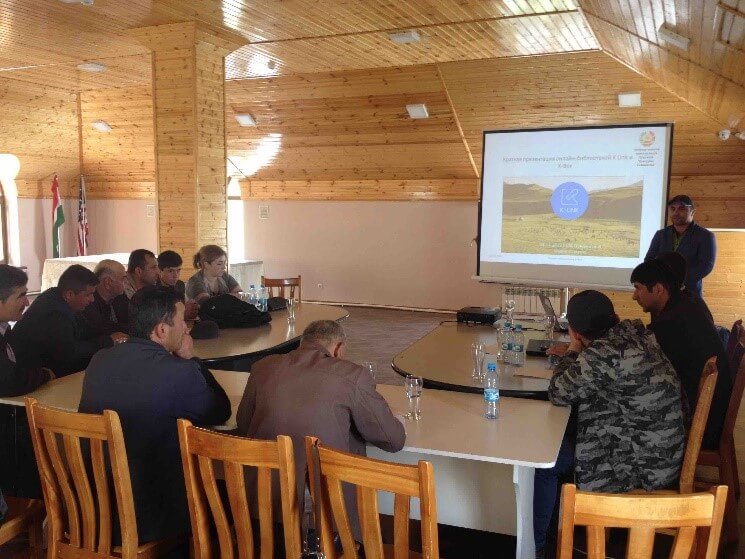Representatives of forest enterprises, international organisations, and local civil society, communities and forest users came together in a planning workshop. They outlined a plan for how to raise the number of JFM* users in Zeravshan valley, focusing upon what different stakeholders in Penjikent intend to achieve, how they will implement it, and which individuals, deadlines and indicators to will be used.
The activity plan is especially useful for harmonising efforts in the field of forestry management in the region, as well as for monitoring and evaluation, said the Director of SFE-Penjikent, Mr. Narzullo Lumonov. JFM improves protection of existing forests and conserves biodiversity.
Most organisations, including Penjikent’s forest enterprises, do not have a mechanism for knowledge collection, exchange and dissemination. They have so far used outdated methods of information storage and thus face systematic difficulties in finding final versions of documents.
Thus, an additional training in K-Link/K-DMS was conducted. The K-Link/K-DMS system was developed several years ago; in 2019, a comprehensive study has been ongoing regarding the further use of this technology.
*Abbreviations/Explanation:
JFM – Joint Forest Management is partnerships involving both the local forest enterprises and local communities to rehabilitate forests. Its central idea is a long-term lease of degraded forest land to the local population. JFM is implemented in Tajikistan since 2006.
SFE-Penjikent – State Forest Enterprise of Penjikent.

